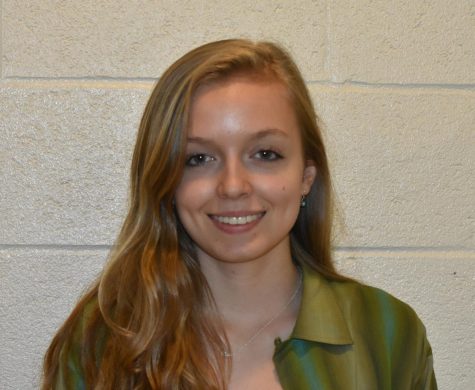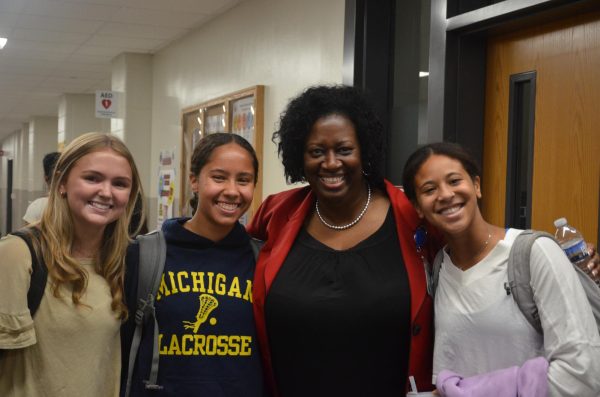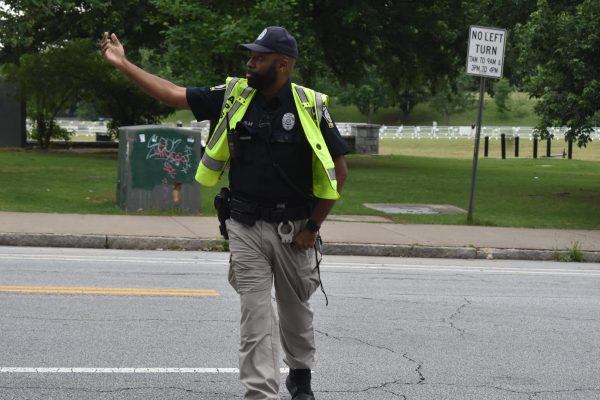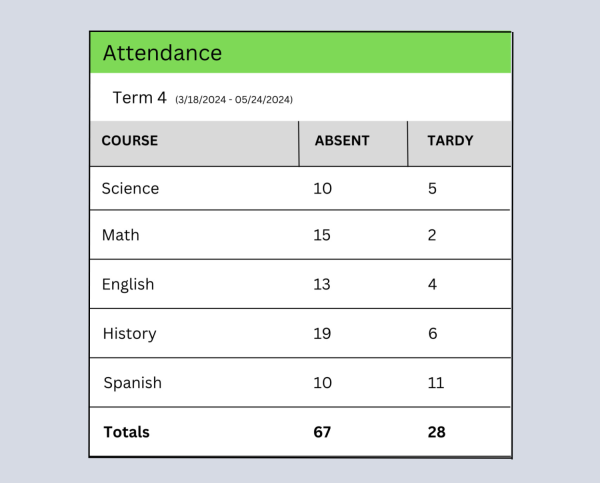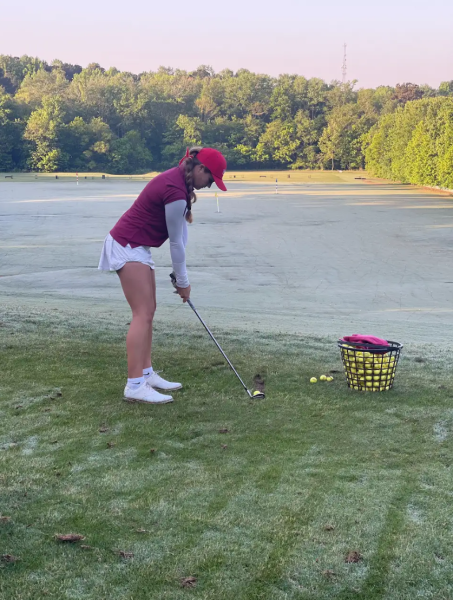LGBTQ community proud, students still seek acceptance
November 9, 2016
Hundreds flocked to Midtown Atlanta to celebrate the Lesbian, Gay, Bisexual, Transgender, and Queer/Questioning (LGBTQ) community during the Atlanta Pride Festival. Held Oct. 7 through Oct. 9, participants danced in the streets and walked in the event’s colorful parade.
Rainbow flags and signs bearing “Love is Love” waved in the air. At the center of the festival at nearby Piedmont Park, stood Grady High School.
“There is widespread acceptance at Grady,” junior Graham Williams, who openly identifies as gay, said. “With some of the staff and teachers being a part of the LGBTQ community, that definitely helps contribute to the atmosphere at Grady.”
At Grady, many LGBTQ students and teachers say their sexuality is accepted by both students and teachers.
“Being in Midtown Atlanta, where the LGBTQ community is more visible, creates an atmosphere of diversity,” said Chris Wharton, a social studies teacher and former leader of the Gay Straight Alliance Club. “Within Atlanta Public Schools, Grady is probably one of the more accepting schools.”
According to Wharton, there are several schools with GSA clubs in the Atlanta area, including Johns Creek High School in north Fulton County and The Paideia School nearby on Ponce de Leon Avenue, but Grady is the only one with GSA representation in the Atlanta Pride Parade.
The generally liberal atmosphere at the school has, however, left more conservative students feeling uncomfortable.
“Grady’s left-wing environment has greatly shaped my views, and only strengthened them,” sophomore Zode Compton said. “I have recently watched men who view themselves as women walk into the girl’s restroom. I was so tempted to say something, but I knew that I would be judged for having the beliefs I do.”
Compton does not believe that being trans- gender is ethical or natural and believes Grady’s culture of acceptance has impeded his education. Sophomore Jordan Thomas agrees.
“Men are men and women are women; facts do not care about feelings,” Thomas said. “No matter how you feel, your gender won’t change.”
On March 23, North Carolina passed a law, commonly known as the “Bathroom Bill,” requiring students to use the restroom of the gender on their birth certificates.
Many states began the debate on whether they should abide by President Barack Obama’s guidelines for schools to allow transgender students to use the bathroom of the gender they identify with, or if they should create their own policies. Georgia Gov. Nathan Deal said it was up to the 181 school districts, not the state, to determine an appropriate response.
While Compton’s beliefs are not widely expressed at Grady, some uneasiness does exist in parts of the LGBTQ population. Despite the more accepting perception of Grady, many LGBTQ students think the school community is not as tolerant as the surrounding Midtown area.
“Most students are accepting, but there are a handful who aren’t at all, and it’s hard to be my- self sometimes,” sophomore Carrie Miller, who came out as a lesbian earlier this year said. “We shouldn’t make fun of people who are different, and Grady staff needs to make sure the LGBTQ community is included and make sure they know they are accepted.”
Miller expressed her concern with the sexual education for LGBTQ students and on multiple occasions felt uncomfortable in health class. This opinion is widely shared among LGBTQ students at Grady.
“I liked my teacher, but they weren’t inclusive at all,” junior Emerson Moore said. “We had people come visit the class every week, and they would do things that divided the class by gender or give us a sheet of paper that asked us what we looked for in the opposite gender. It completely assumed that everyone was straight or cis (cisgender, identifying with the sex assigned at birth) and that’s so messed up.”
Myss Jelks, Grady’s athletic director and a health teacher, said the issues were inadvertent. According to her, Grady constantly tries its best to meet the needs of all students.
“All students should feel comfortable coming to us with their concerns,” Jelks said.
While the push for more inclusive sexual education in health class is growing, some think it hasn’t reached its full potential. Ju- nior Lena Denton, who identifies as bisexual, sees a gap in education on healthy LGBTQ romantic relationships.
“It is important for people to know what it means to be in a healthy relationship, and that is always taught in health classes in a very heteronormative way,” Denton said.
Williams also felt the majority of the sexual education he received in health class his freshman year was geared toward straight, or cisgender, students.
“Health class barely taught me anything” Williams said. “I felt like I was in the scene from `Mean Girls’ where the coach says, ‘Don’t have sex, or you will get pregnant and die.’ Notice how this statement also doesn’t speak to the LGBTQ community.”
Miller thinks if health classes simply made sure to mention the LGBTQ relationships in the same way they talk about straight relationships, it would make a huge difference.
“There are larger curriculum changes that I think need to be made in the future, but for now there are steps that can be taken to make every student feel comfortable and included,” Miller said.
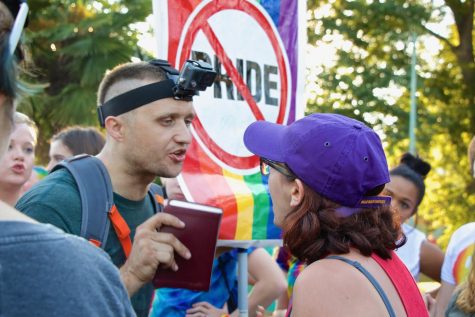
A group of protestors at Atlanta’s annual Pride Festival in Piedmont Park confronts a festival-goer, one of whom has an anti-pride sign. Some Grady students have expressed that, while most students and teachers are accepting, they occasionally feel excluded or unable to be themselves.

